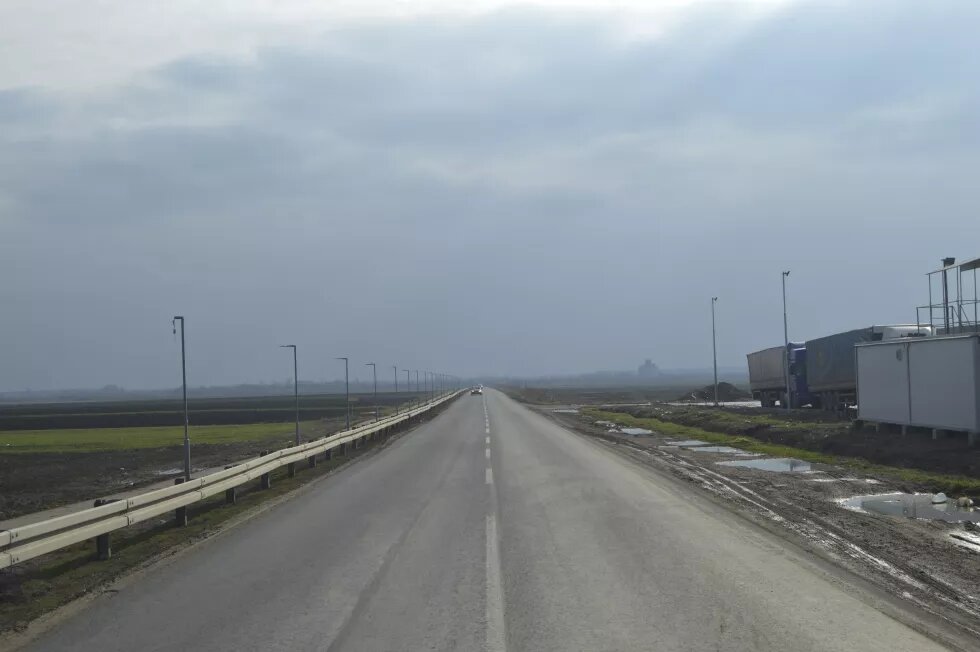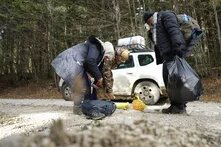
The European Commission considers on 22 October 2019 that Croatia fulfils the necessary conditions for its entry into the Schengen area. Despite numerous reports and appeals from various civil society (Are you serious, Center of peace study) representatives, gouvernmental and non-governmental organisations (UN Special Rapporteur on the human rights of migrants, Council for Europe Commissioner for Human Rights, Human Rights Watch, Amnesty International..) to alert Brussels and the public concerning the human rights violations committed by Croatia.

Push-Back of Human Rights by the European Union
The European Commission considers on 22 October 2019 that Croatia fulfils the necessary conditions for its entry into the Schengen area. Despite numerous reports and appeals from various civil society (Are you serious, Center of peace study) representatives, gouvernmental and non-governmental organisations (UN Special Rapporteur on the human rights of migrants, Council for Europe Commissioner for Human Rights, Human Rights Watch, Amnesty International..) to alert Brussels and the public concerning the human rights violations committed by Croatia.
To join the Schengen area, it is necessary to fulfil as a country certain conditions defined by European law. One of these conditions is to respect the European Union Asylum Act, the EU Charter of Fundamental Rights and the 1951 Refugee Convention i.e. to guarantee the right to asylum. Nevertheless according to serious reports from human rights organisations, Croatia did not provide to everyone the right to seek asylum. Furthermore, Article 4 of the Schengen Borders Code states that Member States should act according to several principles. One of them is the principle of "non-refoulement". The principle of non-refoulement prohibits the return of persons to a country where they would be at risk of cruel, inhuman and degrading treatment, torture or any irreparable harm. Observing the activity along the Croatian borders, show, that Croatian authorities are constantly violating the principle of "non-refoulement" and the fundamental rights.
Background
In 2015 the EU is facing to one of the biggest crisis in decades. Millions of people arrived in Europe in a short period of time to obtain asylum. They arrived by the so called "Balkan route", passing through Turkey, Greece, Bulgaria, Serbia to join the European Union through Hungary and Croatia.
As response to the increase number of people arriving, some member states of the Union adopted a border protection strategy. In fact, Hungary almost immediately constructed a barbed wire barrier first on its border with Serbia and then Croatia. These physical barriers were accompanied by hate speech against refugees, spread by political authorities to legitimise their strict border policy. Subsequently, a number of other European countries such as Northern Macedonia, Croatia, Slovenia and Austria have closed their borders. The time has come to protect European citizens from this invasion by a dangerous enemy: refugees. As a consequence the main routes used by hundreds of thousands of refugees to enter the EU were blocked.
Changed route
In 2018 subsequently of the border protection strategy of the other countries, to pass the Croatian border as the only way for the refugees to reach the EU territory. Several towns at the border of Croatia such as in Bihac and Velika Kladusa (BIH) and Sid (Serbia) became new hot-spots for thousands of refugees.
On the other side of the border Croatia become the new guardian of the European Union border. Which represents also a decisive moment for Zagreb to prove his ability to join the Schengen area in 2020 by firmly protecting the EU's external borders against illegal migration.
The dangerous effects of Croatia determination to tighten external border
In fact since few years, several cases of illegal push-back commited by Croatia have been recorded by the Border Violence Monitoring Network (BVMN) and others Humans Rights activists. These reports underline that the journey of people on the move to Croatia are frequently subjected to deliberate pushbacks and collective expulsions, often accompanied by violence and intimidation without having their asylum claims considered.
The 21 November 2017 Madina Husseini, a five years old Afghan girl and his family have been crossed the border between Serbia and Croatia in order to claimed asylum in EU. They walked for two or three hours until they arrived on Croatia territory. Exhausted and frozen, they sat down in a park to have a rest. It was at this point when they met the Croatian police, who placed the family in a van and drove them back to the Serbian border. They have been thrown out of the van at the place where the railway crosses the border without any explanations. During the dark and cold night after facing this illegal push-back, Medina Husseini lose her life struck by a train.
This fundings among the other 600 cases recorded by the BVMN underline a pattern of systematic violence and illegal pushbacks having irreversible consequences. In fact, these are not isolated incidents of attacks of police authority but rather a planned, continuous and systematic push-back against migrants and asylum seekers.
The tragedy of Medina Husseini opened the sequence of several others incidents, one of seven deaths of refugees recorded in 2017 at the Croatian and Serbian border. The refugees reach Croatia with the hope of exercising their legal right to seek asylum. In return, many of them were robbed, beaten, and abandoned at the same railroad where Madina was killed.
Furthermore we can measure an increase of violence on the scale of the intimidation strategy adopted by Croatia. In fact, according to the funding of the Border Violence Monitoring Network in Croatia 1279 people were subject of a violent push-back of Croatian police officers using their guns. Subsequently it was predictable that “the protection of the border” lead recently Croatians police officers to two shooting. As a result one man was injured and the other found himself in a hospital in a serious conditions.
Recently two Nigerian students on their way to Zagreb for an Inter-universitaire Championship of Ping-Pong end up in a refugee camp in Velika Kladuša in Bosnia-Herzegovina. Despite their valid documents they were violently and illegally deported from Croatia authorities.
The reported violent push-backs[1] , the case of Medina Husseini and the Nigerian students are only some examples of the serious human rights violation committed by the Croatian authorities.
By his decision the European Commission is not only turning a blind eye towards the alarming human rights violations of Croatia, but complicit in the systematic, unlawful and frequently violent pushbacks and collective expulsions of thousands of asylum seekers. By giving the green light to Croatia's accession to the Schengen area, when Croatian push-back should disqualify, what is the signal sent for the future of Human Rights ?
